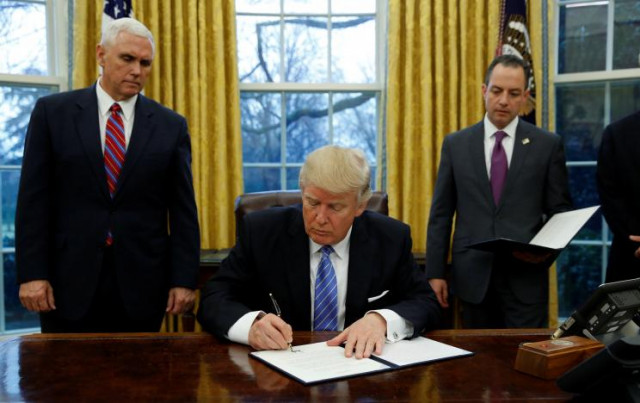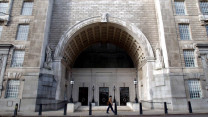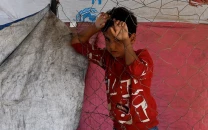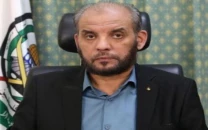Trump to honor refugee swap deal with Australia: source
Trump confirmed the deal to resettle asylum seekers currently held in offshore detention camps to the United States

U.S. President Donald Trump. PHOTO: REUTERS
Trump spoke by telephone with Australian Prime Minister Malcolm Turnbull earlier on Sunday, officials in both countries said, one of a number of conversations the new US president held with world leaders, including Russian President Vladimir Putin, German Chancellor Angela Merkel and Japanese Prime Minister Shinzo Abe.
The Australian government source told Reuters Trump confirmed the deal to resettle asylum seekers currently held in offshore detention camps to the United States would go ahead.
Airlines in Cairo asked to implement Trump travel ban -EgyptAir
Former US President Barack Obama's administration had said the United States would take a substantial number of the 1,200 asylum seekers, who are held in the procession centers on remote Pacific islands in Papua New Guinea and Nauru, after Turnbull agreed to resettle refugees from Guatemala, Honduras and El Salvador.
US Homeland Security officials have begun assessing the asylum seekers, although it was unclear when those found to be genuine refugees would be resettled.
Many of those in Australia's offshore camps have fled conflict in Afghanistan, Iraq, Iran, and elsewhere.
Confirmation the deal would proceed came less than 24 hours after Trump signed an executive order that put a four-month hold on allowing refugees into the United States and temporarily barred travelers from Syria and six other Muslim-majority countries, including Iraq and Iran.
Trump says new order on refugees is not a Muslim ban
Trump's "extreme vetting" order had cast doubt on the future of the refugee resettlement deal.
Australia's hardline immigration policy is a contentious issue that has drawn international condemnation from the United Nations and other rights groups, but which remains popular at home and has bipartisan political support.
Once fringe, far-right political parties like Pauline Hanson’s One Nation have gained wider backing, which sometimes spills over into calls for a ban on Muslim immigration.
Australia, a staunch US ally, has been on heightened alert for attacks by home-grown radicals since 2014 and authorities say they have thwarted a number of plots.



















COMMENTS
Comments are moderated and generally will be posted if they are on-topic and not abusive.
For more information, please see our Comments FAQ